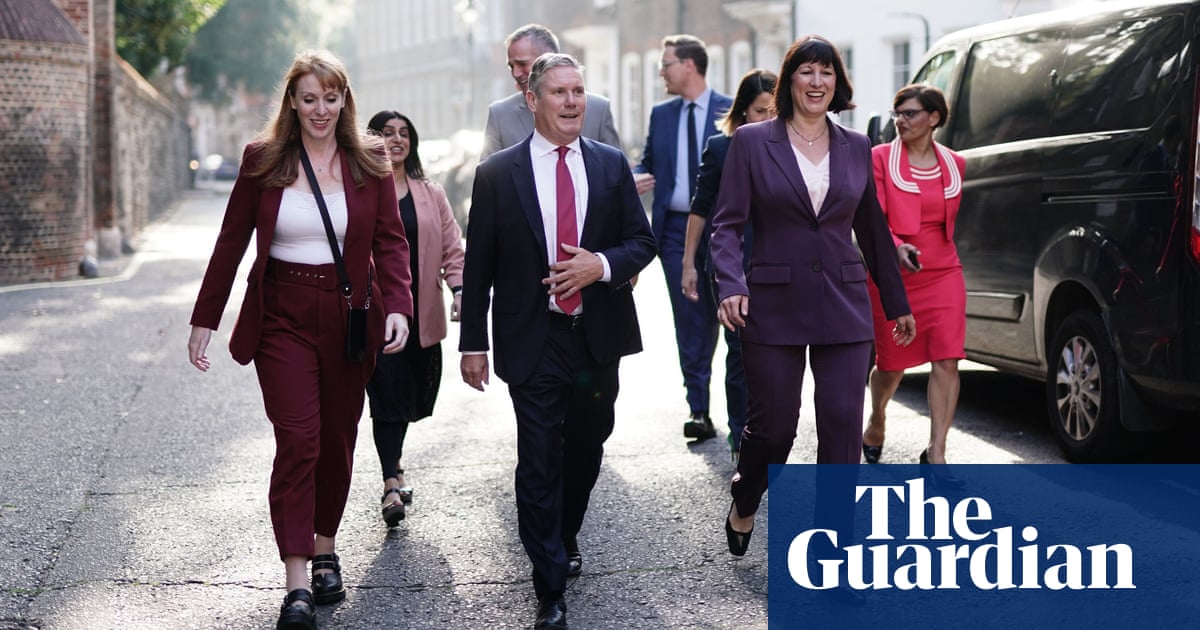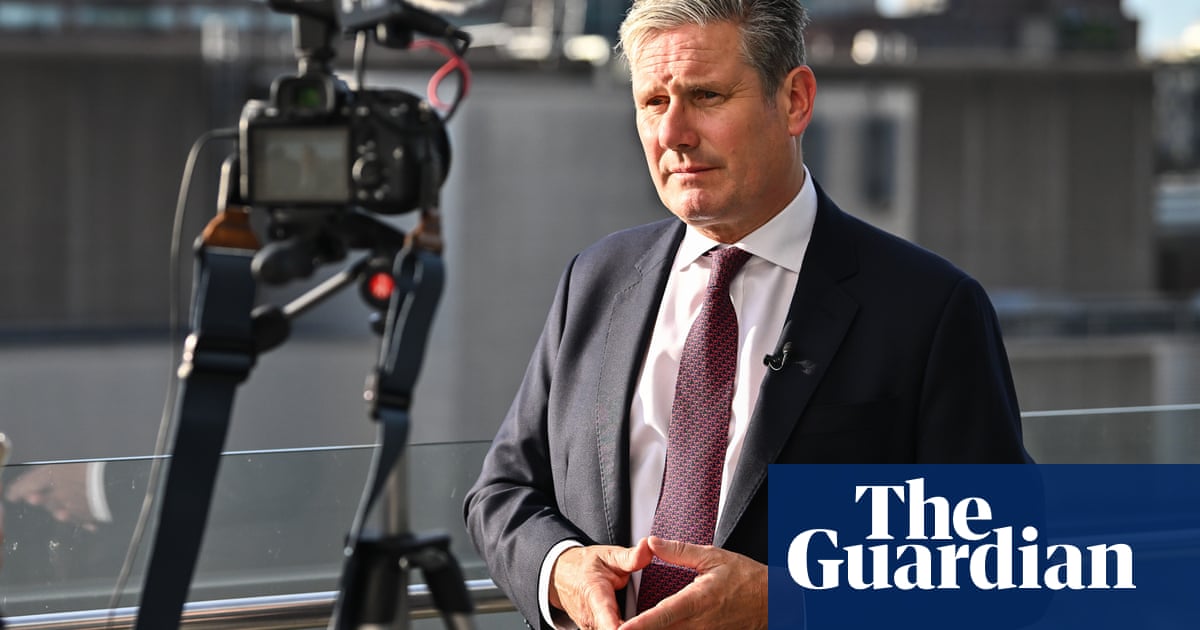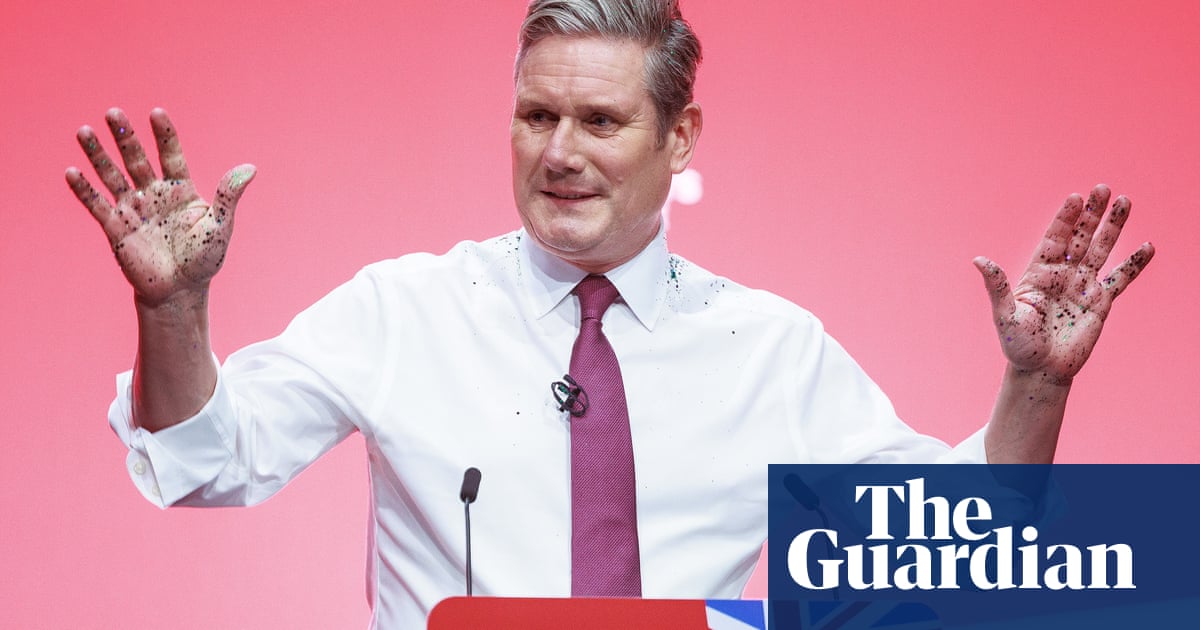
Ed Miliband is returning to frontline politics as Labour’s shadow business, energy and industry secretary, the party announced on Monday, as the new leader, Keir Starmer, completed his shadow cabinet.
As well as the return of the former leader, David Lammy, the MP for Tottenham who has campaigned for justice for the Windrush victims, has been promoted to shadow justice secretary. Lord Falconer, the former solicitor general who was closely associated with Tony Blair’s government, will return to the shadow cabinet as shadow attorney general.
The newly announced cabinet is majority female, with seven BAME MPs included. A quarter of appointees attended fee-paying schools, with just under a third Oxbridge graduates.
Miliband, who was the energy secretary under Gordon Brown and led the party from 2010 until the 2015 general election, said in a statement that he looked forward to playing a part in the country’s response to the coronavirus crisis.
“As Keir has said, we cannot go back to business as usual after this crisis,” he said.
“We will need to reshape our economy, addressing the insecurity many millions of workers face. We must also return to climate change as the unavoidable long-term issue of our time.”
The appointments of Miliband and Falconer to the shadow cabinet signal the ascent of the soft left in the party, at the expense of the Jeremy Corbyn-supporting hard left who have dominated since 2015.
Starmer’s victory on Sunday was emphatic, with him winning 56.2% of the members’ and affiliates’ votes, having already won a majority of votes among the Parliamentary Labour party.
Starmer’s allies have insisted there will be no “purge” of the left but add that there will be a marked shift in tone. “We will be putting the country first, and we will be presenting ourselves as an alternative government. We are not seeking ideological purity,” said one.
Rebecca Long-Bailey, who came second behind Starmer in the contest to become leader, has been given a job as shadow education secretary. She is one of few outright supporters of Corbyn who have survived a cull of the last cabinet.
Andy McDonald, another Corbyn ally, has been made shadow employment rights and protections secretary. Among those from the left of the party who were ousted were Diane Abbott, Richard Burgon, Dawn Butler, Barry Gardiner, Ian Lavery and Jon Trickett. All will now return to the backbenches.
Another defeated leadership candidate, Emily Thornberry, will return as shadow international trade secretary.
The newly announced shadow cabinet is majority female, with 17 women and 15 men. There are seven BAME shadow cabinet members, including Lisa Nandy, Lammy and Marsha de Cordova, the new shadow women and equalities secretary.
John Healey, who covered the housing brief under Corbyn, will be the party’s new defence spokesman – a tricky brief in a party torn between supporting nuclear disarmament and pressure from unions to sustain jobs in the defence sector.
Those new to the shadow cabinet include: Bridget Phillipson, the member for Houghton and Sunderland South and a critic of Corbyn, who will be the shadow chief secretary to the treasury; the Birmingham Edgbaston MP Preet Kaur Gill, who will shadow the international development brief; and Thangam Debbonaire, a former whip under Corbyn who will now be the shadow housing secretary.
Louise Haigh, the campaigning former policing minister who organised Nandy’s campaign, has been made interim shadow Northern Ireland secretary. Tony Lloyd, the incumbent, has been hospitalised with the coronavirus, it emerged on Monday.
On Sunday, Starmer surprised many when he made Nandy, another candidate he defeated to become Labour leader, his shadow foreign secretary. Anneliese Dodds, who became an MP only in 2017, was promoted to become shadow chancellor.
Nick Thomas-Symonds, a barrister, takes over from Abbott as shadow home secretary. There was a return to the shadow cabinet for Rachel Reeves, the Leeds West MP who was shadow work and pensions minister under Miliband. She was made shadow chancellor of the Duchy of Lancaster.
As widely predicted, Jonathan Ashworth, the shadow health secretary, will remain in his job.
Constituencies in the north-west and London are equally represented, with 19% of the shadow cabinet representing a seat in one of these two regions, while 12.5% of Starmer’s cabinet represent Yorkshire and the Humber.
At 49, the average age of Starmer’s cabinet is slightly older than Boris Johnson’s cabinet (48). More than half of the shadow cabinet were born in the 1970s and 80s.
Three quarters of the new shadow cabinet attended a state school, with 20 MPs attending comprehensives and four attending a grammar. A further five went to a fee-paying school, including Dodds.
Nine members of the shadow cabinet studied at Oxford or Cambridge, just under a third of the total. All but three were university graduates.
Commenting on the new team, Starmer said: “I’m proud to have appointed a shadow cabinet that showcases the breadth, depth and talents of the Labour party.
“This is a new team that will be relentlessly focused on acting in the national interest to respond to the coronavirus pandemic and rebuilding Labour so that it can win the next election.”
The shadow cabinet in full
• Keir Starmer, leader of the opposition.
• Angela Rayner, deputy leader and chair of the Labour party.
• Anneliese Dodds, shadow chancellor of the exchequer.
• Lisa Nandy, shadow foreign secretary.
• Nick Thomas-Symonds, shadow home secretary.
• Rachel Reeves, shadow chancellor of the Duchy of Lancaster.
• David Lammy, shadow justice secretary.
• John Healey, shadow defence secretary.
• Ed Miliband, shadow business, energy and industrial secretary.
• Emily Thornberry, shadow international trade secretary.
• Jonathan Reynolds, shadow work and pensions secretary.
• Jonathan Ashworth, shadow secretary of state for health and social care.
• Rebecca Long-Bailey, shadow education secretary.
• Jo Stevens, shadow digital, culture, media and sport secretary.
• Bridget Phillipson, shadow chief secretary to the Treasury.
• Luke Pollard, shadow environment, food and rural affairs secretary.
• Steve Reed, shadow communities and local government secretary.
• Thangam Debbonaire, shadow housing secretary.
• Jim McMahon, shadow transport secretary.
• Preet Kaur Gill, shadow international development secretary.
• Louise Haigh, shadow Northern Ireland secretary (interim while Tony Lloyd is in hospital being treated for coronavirus).
• Ian Murray, shadow Scotland secretary.
• Nia Griffith, shadow Wales secretary.
• Marsha de Cordova, shadow women and equalities secretary.
• Andy McDonald, shadow employment rights and protections secretary.
• Rosena Allin-Khan, shadow minister for mental health.
• Cat Smith, shadow minister for young people and voter engagement.
• Lord Falconer, shadow attorney general.
• Valerie Vaz, shadow leader of the house.
• Nick Brown, opposition chief whip.
• Lady Smith, shadow leader of the Lords.
• Lord McAvoy, Lords’ Opposition chief whip.
Additional reporting by Caelainn Barr












